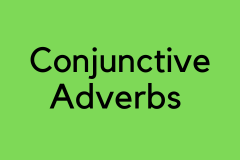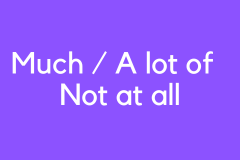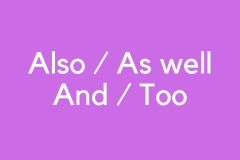Adverbs of Time
Learn how to use adverbs of time in English.
Can you answer these grammar questions correctly?
Adverbs of Time
Adverbs of time tell us when something happens.
Soon
This word means something will happen in a short time.
This word means something will happen in a short time.
- Are you coming soon?
- ✔️ I will leave soon.
- ❌ I am not going soon.
Later
This word means after now.
This word means after now.
- Can we talk later?
- ✔️ I will call you later.
- ❌ I won’t see him later.
Already
This word means something happened before now.
This word means something happened before now.
- Have you already eaten?
- ✔️ I already finished my homework.
- ❌ I haven’t finished yet.
Not yet
This phrase is used in questions and negative sentences to talk about something expected.
This phrase is used in questions and negative sentences to talk about something expected.
- Is Bob here?
- ✔️ Yes, he is.
- ❌ No, not yet.
Almost
This word means something is very close to happening.
This word means something is very close to happening.
- Are you almost ready?
- ✔️ I am almost done.
- ❌ I am not almost done. I need more time.
Still
This word means something is continuing or has not changed.
This word means something is continuing or has not changed.
- Are you still working?
- ✔️ I am still working.
- ❌ I am not working anymore.
Just
This word means something happened a very short time ago.
This word means something happened a very short time ago.
- Did you just call me?
- ✔️ I just called you.
- ❌ I didn’t just call you.
Not Anymore
This word means something was true in the past but is not true now.
This word means something was true in the past but is not true now.
- Do you still play soccer?
- ✔️ I still play soccer.
- ❌ I don’t play soccer anymore.
- ❌ Not anymore.
A2-17 Adverbs of Addition and Lists
Well, first, it is close to shops. In addition, it is near parks.
Well, first, it is close to shops. In addition, it is near parks.










